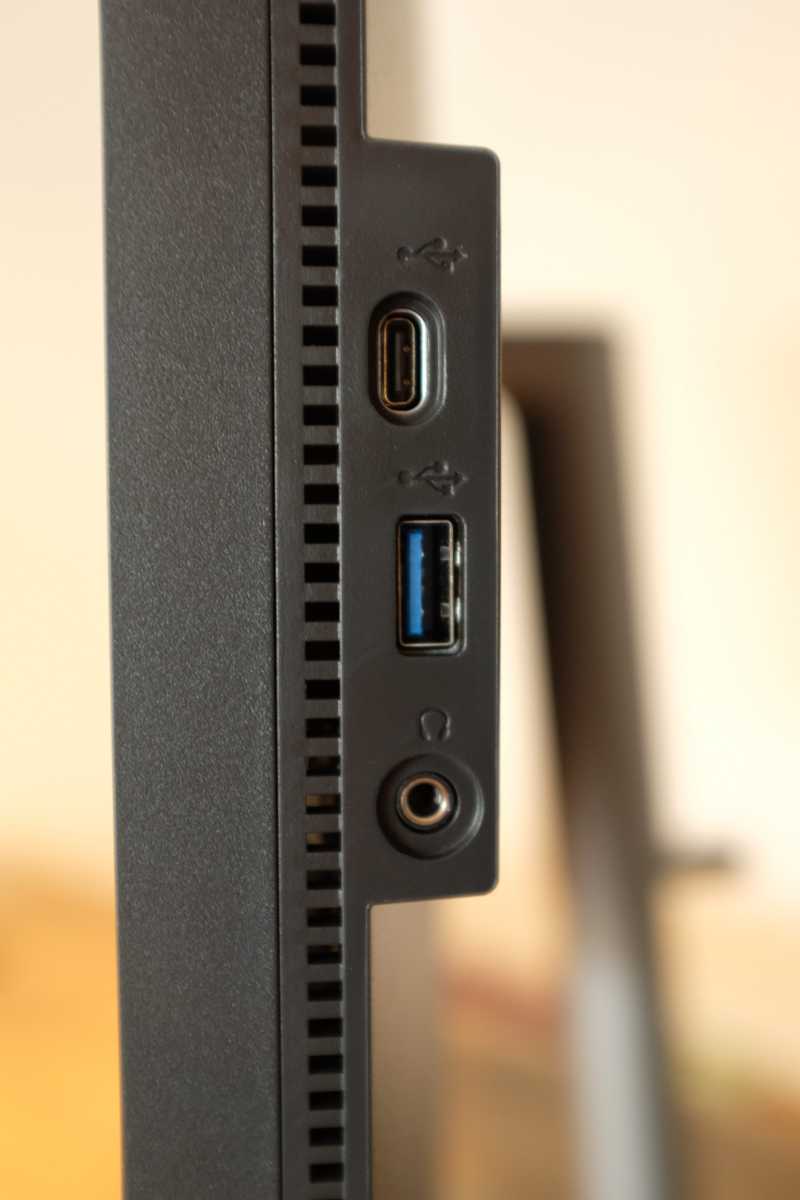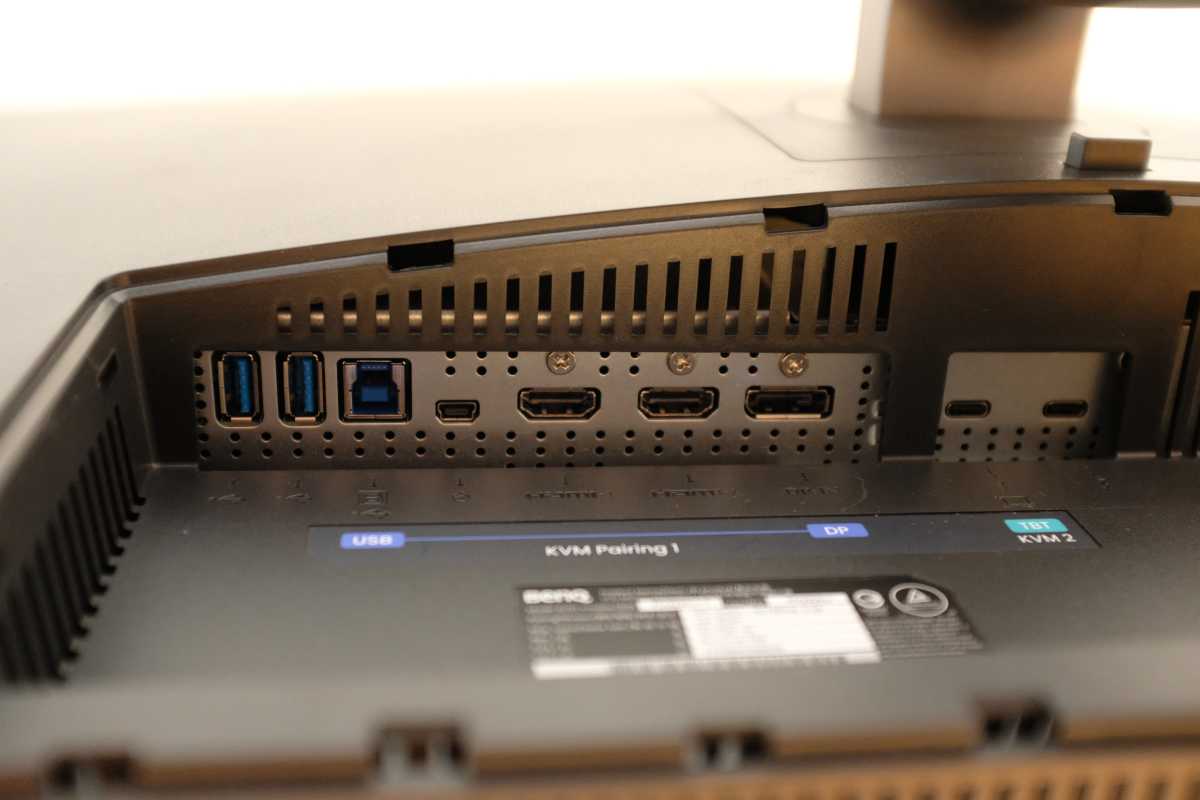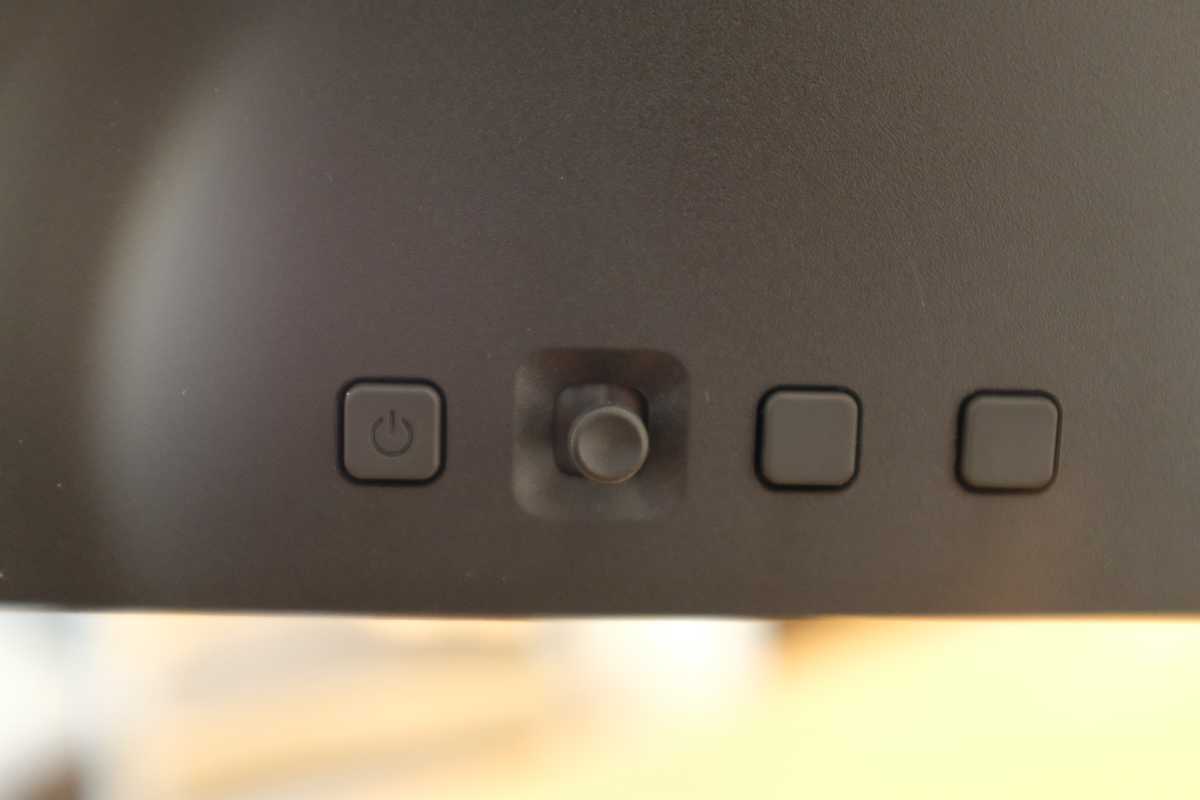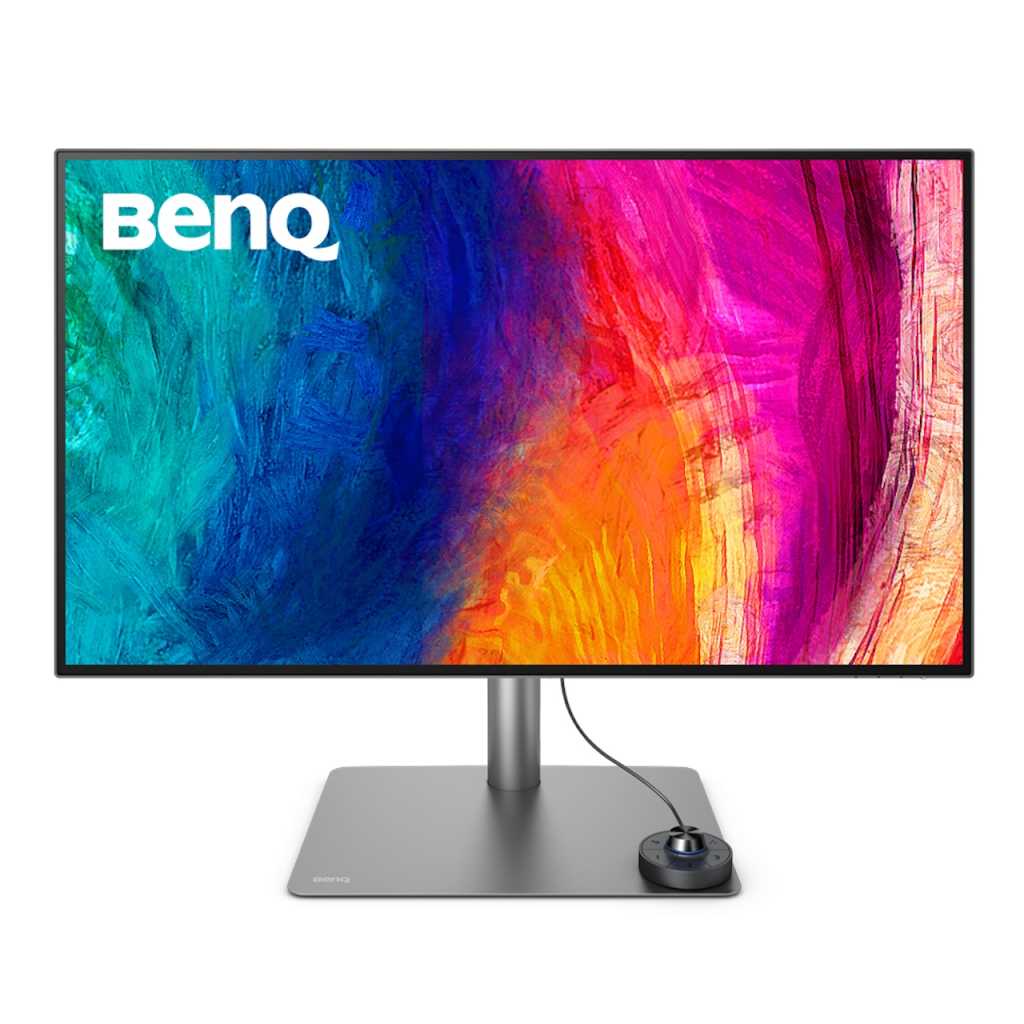
At a glance
Expert’s Rating
Pros
- Very large screen
- Colorfast and bright
- Thunderbolt connection
Cons
- Only 60Hz
- Rather meager speakers
- No webcam
Our Verdict
The BenQ PD3225U offers high display quality and many practical functions. It’s ideal for design, desktop publishing, and photo and video editing–it’s a good all-around display. Thanks to the Thunderbolt connection, it is ideal as a Mac docking station.
Price When Reviewed
$1,099.99
Best Prices Today: BenQ PD3225U
$1,099.99

$1099.99
If you don’t know anything about monitors, you might think any monitor will do for your Mac. While that may be true—some displays are made to specifically address the needs of Mac users. Take BenQ, for example, with its DesignVue series, which has a Thunderbolt 3 connection as standard, can synchronize its colors, and is therefore “Mac-ready.” The latest model in the family is the PD3225U, a 31.5-inch giant.
BenQ PD3225U: Specifications
| Size | 31.5 inch IPS |
| Resolution | 3840 by 2160 pixels |
| Brightness/HDR | 400/400 nits |
| Response time | 5 ms |
| Refresh rate | 60Hz |
| Colour ranges | 99% Rec.709 99% sRGB 98% DCI-P3 |
| Connectors | Thunderbolt 3 On Thunderbolt 3 Off 3 USB-A ports 1 USB-C port 1 USB-B port 2 HDMI 2.0 ports 1 DisplayPort 1.4 |
| Audio | 2 2W speakers 3.5mm audio jack |
| Webcam | No |
BenQ PD3225U: Connectivity-friendly docking station
Like Apple’s Studio Display, the PD3225U’s Thunderbolt support sets it apart from other monitors. Thunderbolt is used to connect to the Mac and it offers 85 watts of charging power, so it can charge a MacBook. The Thunderbolt connection also transforms the display with its four USB ports and an additional Thunderbolt socket into a practical docking station for connecting peripherals such as hard drives or additional hubs. The second Thunderbolt port also serves as a daisy-chain connection, which can be used to connect a second monitor or end devices with their own power supply–it provides only 15 watts of charging power.
BenQ provides a 3-foot (1-meter) Thunderbolt cable, but it would be nice if it was a little longer. It might be too short if you want to connect the display to a Mac that’s placed underneath a desk. The PD3225U has one USB-C port, located on the right side, along with a USB-A port and a 3.5mm audio jack. These are the ports you use for items you often plug/unplug, such as a thumb drive.

The side ports of the BenQ PD3225U offer a practical way to connect devices.

The side ports of the BenQ PD3225U offer a practical way to connect devices.
Foundry

The side ports of the BenQ PD3225U offer a practical way to connect devices.
Foundry
Foundry
The rest of the ports are located on the rear of the display. For computers without Thunderbolt, the PD3225U also offers two HDMI 2.0 ports and DisplayPort 1.4. Thanks to the integrated KVM switch, two computers can be switched quickly, although the mouse and keyboard must be connected to the monitor by cable. The BenQ Hotkey Puck G2 supplied helps with this.

The BenQ PD3225U offers a nice array of ports.

The BenQ PD3225U offers a nice array of ports.
Foundry

The BenQ PD3225U offers a nice array of ports.
Foundry
Foundry
The PD3235U has a pair of 2-watt speakers. They don’t leave much of an impression, so if audio is important, you’ll want to attach USB speakers. The display also does not have a webcam, so you’ll need to add one to your shopping list if that’s a need.
BenQ PD3225U: Image quality
The 31.5-inch PD3225U makes an impression on the desk and offers an enormous amount of space to work on your Mac. Even with the display set to its native 4K resolution (3,840 by 2,160 pixels), on-screen items are still usable. If it’s too small for you, you can adjust the resolution. I found the 3,008 by 1,692-pixel setting to be optimal–the PD3225U displays content as large as on an iMac display.
I want to reiterate that the PD3225U is a 4K display. Displays that offer higher resolutions are available, such as Apple’s 5K Studio Display, which is more expensive. You can even find 8K displays, but again, they are more expensive.
Content on the PD3225U is always clearly recognizable thanks to a peak brightness of 400 nits and a contrast ratio of 2,000:1. The PD3225Q is also an exceptionally evenly illuminated panel with no halos or similar display problems. The matte screen is coated with an anti-glare coating that largely prevents reflections from light sources.
The PD3225U covers the most important color spaces almost completely: 98 percent DCI-P3, 99 percent sRGB, and 99 percent Rec.709.
The PD3225U’s M-Book mode is remarkable: this color mode optimized for the Mac minimizes the optical differences between the screen and the displays used in MacBooks. This ensures color-fast dual-monitor operation with a Macbook and BenQ monitor. In practice, there are no significant color display differences between the BenQ display and the MacBook, but the high brightness of modern MacBooks does make a certain difference.
However, there are also several other color modes, such as DCI-P3, and sRGB, or modes intended for specific applications such as “Darkroom” or “Office.” The screen can be set using the dual display function so that it uses the M-Book mode on the left and the sRGB mode on the right, for example. This makes it behave like two differently set screens. In this way, applications and media can be viewed quickly in the corresponding color mode if required.
One drawback to the PD3225U is that it does not offer variable refresh rates. It’s set to 60Hz, which is sufficient for most people.
BenQ PD3225U: Display Pilot 2 for convenient display control
The PD3225U also supports BenQ’s own Display Pilot software. This tool allows you to conveniently control the PD3225U from the Mac via the menu bar.
Thanks to the iKeyboard Control feature (which must first be activated in Display Pilot), the brightness of the external monitor can be easily controlled using the usual F1/F2 keys: All you have to do is place the mouse pointer on the PD3225U. If it is on the MacBook display, the keys dim the display. Display Pilot also allows access to many important screen functions without the user having to reach behind the monitor to fiddle with the screen buttons.
The software not only offers the option of quickly switching between color modes but also provides quick access to desktop partitioning or the picture-in-picture function. The option of assigning specific color profiles to certain applications is practical: As soon as the application is active (Photoshop or Pixelmator, for example) the monitor switches to the required color mode on request.

If you don’t use the Display Pilot software, the display controls can be accessed using buttons and a little joystick on the rear.

If you don’t use the Display Pilot software, the display controls can be accessed using buttons and a little joystick on the rear.
Foundry

If you don’t use the Display Pilot software, the display controls can be accessed using buttons and a little joystick on the rear.
Foundry
Foundry
BenQ PD3225U: Price
The PD3235U has the following list prices:
- U.S.: $1,099.99
- U.K.: £1,099.99
- Canada: $1,499
- Australia: $1,799
Should you buy the BenQ PD3225U?
The PD3225U offers everything that professional Mac users need: A beautiful, bright, well-lit panel, factory calibration including a high level of color quality, various color modes, and exceptionally good connectivity. The Display Pilot 2 app rounds off the package, which makes operating the screen a real pleasure. Despite the “only” 4K resolution, BenQ delivers a real productivity monster with this monitor, which should find many friends among Mac users and beyond, thanks to its large work surface and clever features.
This article originally appeared on Macwelt and was translated by Roman Loyola.
This article originally appeared on our sister publication Macwelt and was translated and localized from German.





